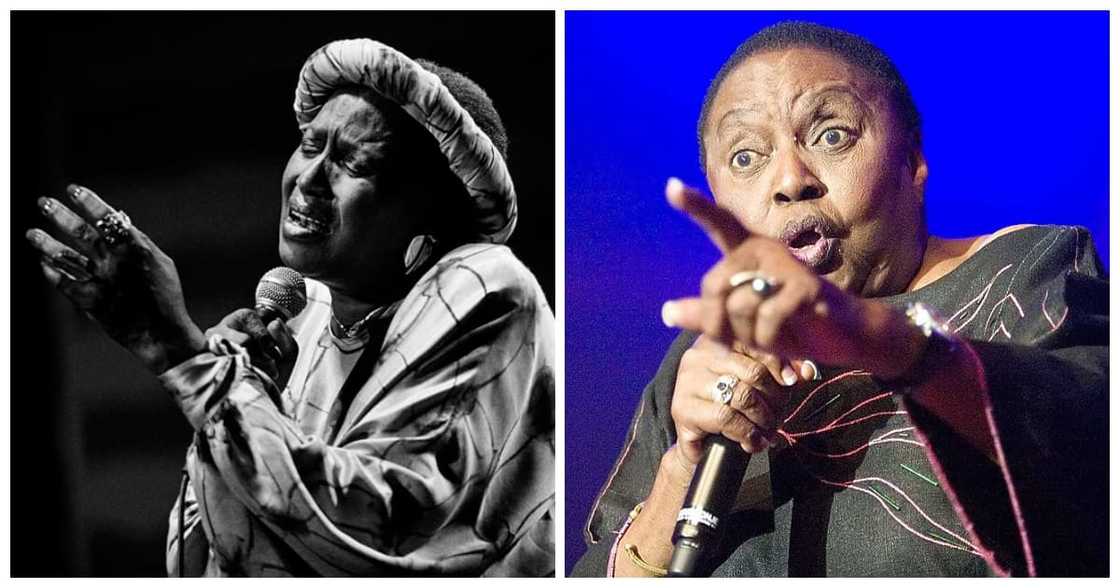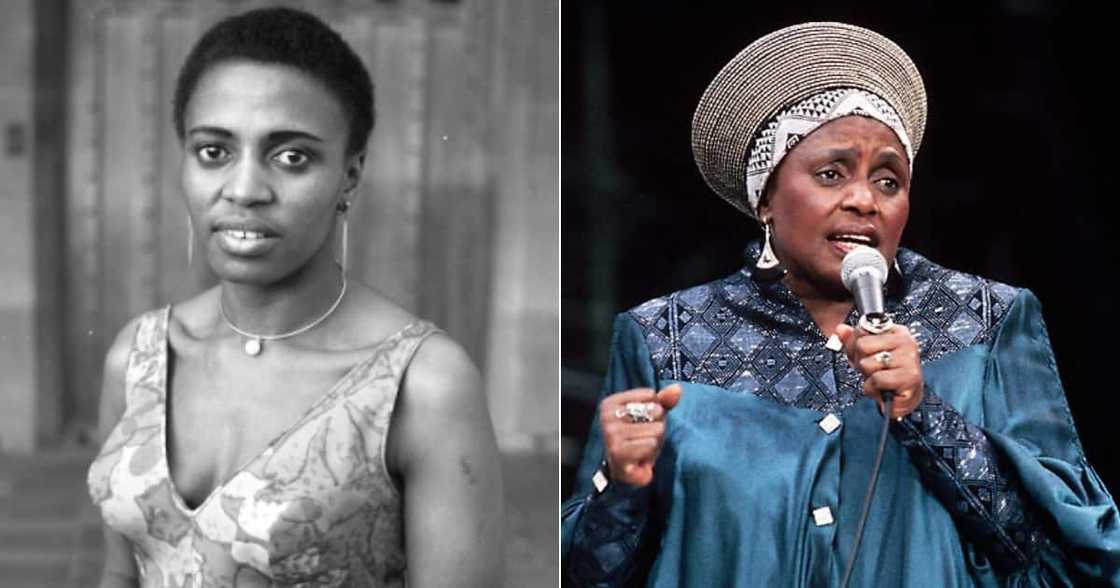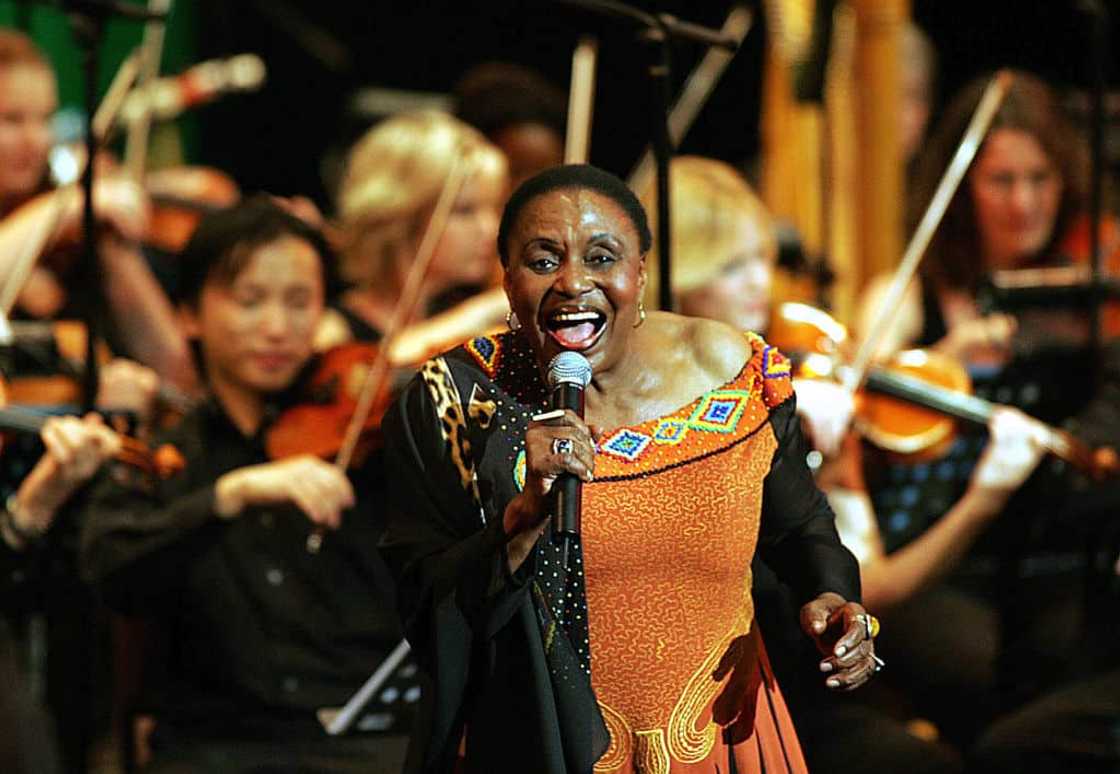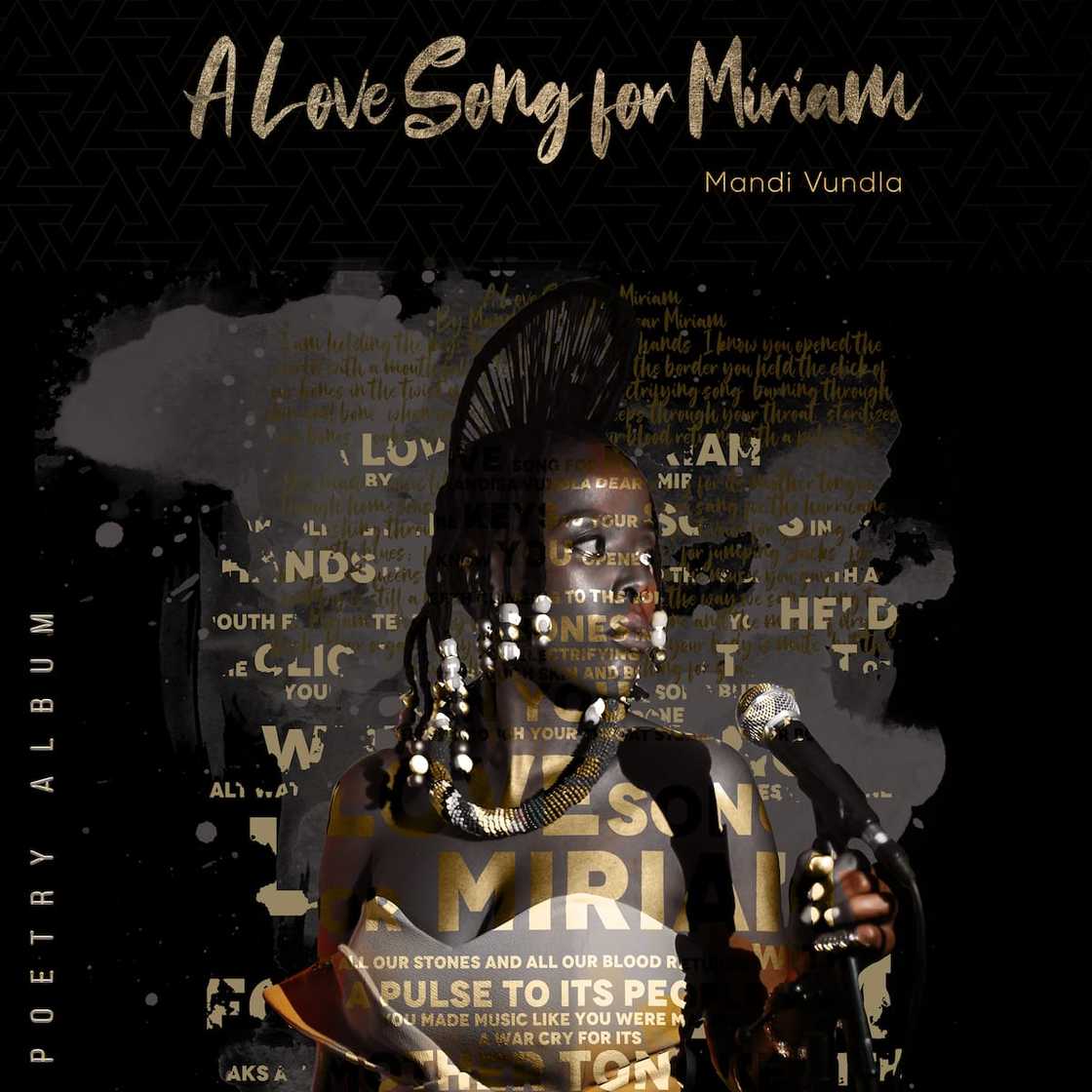Mama Africa: Remembering the Late Miriam Makeba on Her 89th Birthday
Thirteen years have flown by since the passing of music icon Zenzile Miriam Makeba. In the wake of her birth month, Briefly.co.za profiles the life and times of the African legend. The South African singer, songwriter, actress, United Nations goodwill ambassador, and civil rights activist will forever be remembered as Mama Africa because of her influential and motherly role for the children of Africa.
PAY ATTENTION: Join Briefly News' Telegram channel! Never miss important updates!
1. Miriam Makeba’s early life
Zenzile Miriam Makeba was born on 4 March 1932 in Prospect, a black township near Johannesburg. Makeba was birthed by a Swati mother, Christina Makeba and a Xhosa father, Caswell Makeba. Christina was a sangoma (traditional healer) who worked as a domestic worker while Castel passed away when Miriam was still a toddler.
Miriam’s mother was warned that the birth of her child would be difficult and possibly fatal but she went ahead with the pregnancy anyway. During her excruciating labour, Miriam’s grandmother said “uzenzile” which is the Nguni term for “you brought this on yourself”.

Source: Instagram
The term inspired Miriam’s mother to name her Zenzile.
A few days after birth, Miriam’s mother was arrested for selling homemade beer. The family could not afford to pay the fine and the woman was forced to serve a six month sentence with her infant child.
Makeba enjoyed singing from a young age. She joined the choir of the Kilnerton Training Institute in Pretoria, an all-black Methodist primary school that she attended for eight years.
Makeba once admitted in an interview that she she learned to sing in English before she could speak the language.
The family moved to the Transvaal when Makeba was a child. She was forced to work as a nanny due to their financial situation. Her mother worked for “white families” in Johannesburg and would be away for weeks. The young Makeba and her five siblings lived with her grandmother for a while in Pretoria.
2. Miriam Makeba’s first marriage and birth of her only child
In 1949, Makeba married James Kubay, a policeman in training. The couple had a child named Bongi Makeba in 1950. Makeba was then diagnosed with breast cancer, and her husband, who was said to have beaten her, left her shortly afterwards. Their marriage lasted only two years.
3. Miriam Makeba’s early career
Makeba began her professional musical career with the Cuban Brothers, a South African all-male ensemble who sang covers of American songs.
Thereafter, Makeba joined a jazz group called the Manhattan Brothers.
Makeba was the only woman in the group. They recorded her first hit, Laku Tshoni Ilanga, in 1953. Makeba moved on in 1956 and joined a new all-woman group, the Skylarks. The group became highly successful. Makeba received no royalties from her work with the Skylarks.
While performing with the Manhattan Brothers in 1955, Makeba met Nelson Mandela, then a young lawyer. Mandela later recalled the meeting and said that he knew Makeba would make it big.
In 1956, Makeba released Lovely Lies, her first solo song to reach success. The song became the first South African track to make it on the United States Billboard Top 100.
In 1959, just three years later, Makeba sang the lead female role in the Broadway-inspired South African jazz opera King Kong. The musical was performed in a segregated setting and got her attention from the white South African community.

Source: Instagram
In that same year, Makeba landed a cameo in Come Back, Africa, an anti-apartheid film produced and directed by the American independent filmmaker Lionel Rogosin.
Makeba appeared on stage, and sang two songs: her appearance lasted four minutes but made a huge impression on viewers. Rogosin organised a visa for her to attend the premiere of the film at the twenty-fourth Venice Film Festival in Italy, where the film won the prestigious Critics' Choice Award.
The role brought her international recognition and she travelled to London and New York to perform. In London she met the American singer Harry Belafonte, who became her mentor.
4. Exile
Soon after the Sharpeville massacre in 1960, Makeba found out that her mother had died. Makeba tried to return home for the funeral, but discovered that her South African passport had been cancelled. Two of the artist's family members passed away during the massacre.

Source: Getty Images
Makeba became concerned about her family who were still in South Africa, including her daughter. Following the Sharpeville killings, Makeba felt a responsibility to help. She became an increasingly outspoken critic of apartheid and the white-minority government; before the massacre.
Her musical career in the US continued to flourish. White Americans were attracted to her image as an "exotic" African performer, and black Americans related their own experiences of racial segregation to Makeba's struggle against apartheid.
Makeba found company among other African exiles and émigrés in New York, including Hugh Masekela. She married him from 1963 to 1968. It was during this period that the name Mama Africa was born. The woman not only represented South Africans on stage, but also the rest of the African continent.
5. Illness and death
On 9 November 2008, Makeba fell ill during a concert in Italy. She suffered a heart attack after singing her hit song Pata Pata, and was taken to hospital, where she passed on.
6. Tribute
Poet and Founder of the Poetry Zone ZA, Mandisa Vundla recently wrote a poem, or rather an ode to Mama Africa: An Ode, A Love Song For Miriam Makeba.

Source: UGC
In the presentation, Vundla is dressed and styled as Miriam and together with a dancer and a vocalist. The poet claims to have been possessed by Makeba’s creative energy.
“Dear Miriam, I am holding the keys to your song in my hands,I know you opened the world with a mouth full of teeth clinging to the border”
In other news, Briefly.co.za had previously reported that Yvonne Chaka Chaka has been appointed vice-president of the International Confederation of Societies of Authors and Composers (CISAC). Music Africa reported that her election follows in the footsteps of that of Beninese singer Angélique Kidjo.
Yvonne was elected alongside Mexican composer Arturo Márquez.
Enjoyed reading our story? Download BRIEFLY's news app on Google Play now and stay up-to-date with major South African news!
Source: Briefly News






